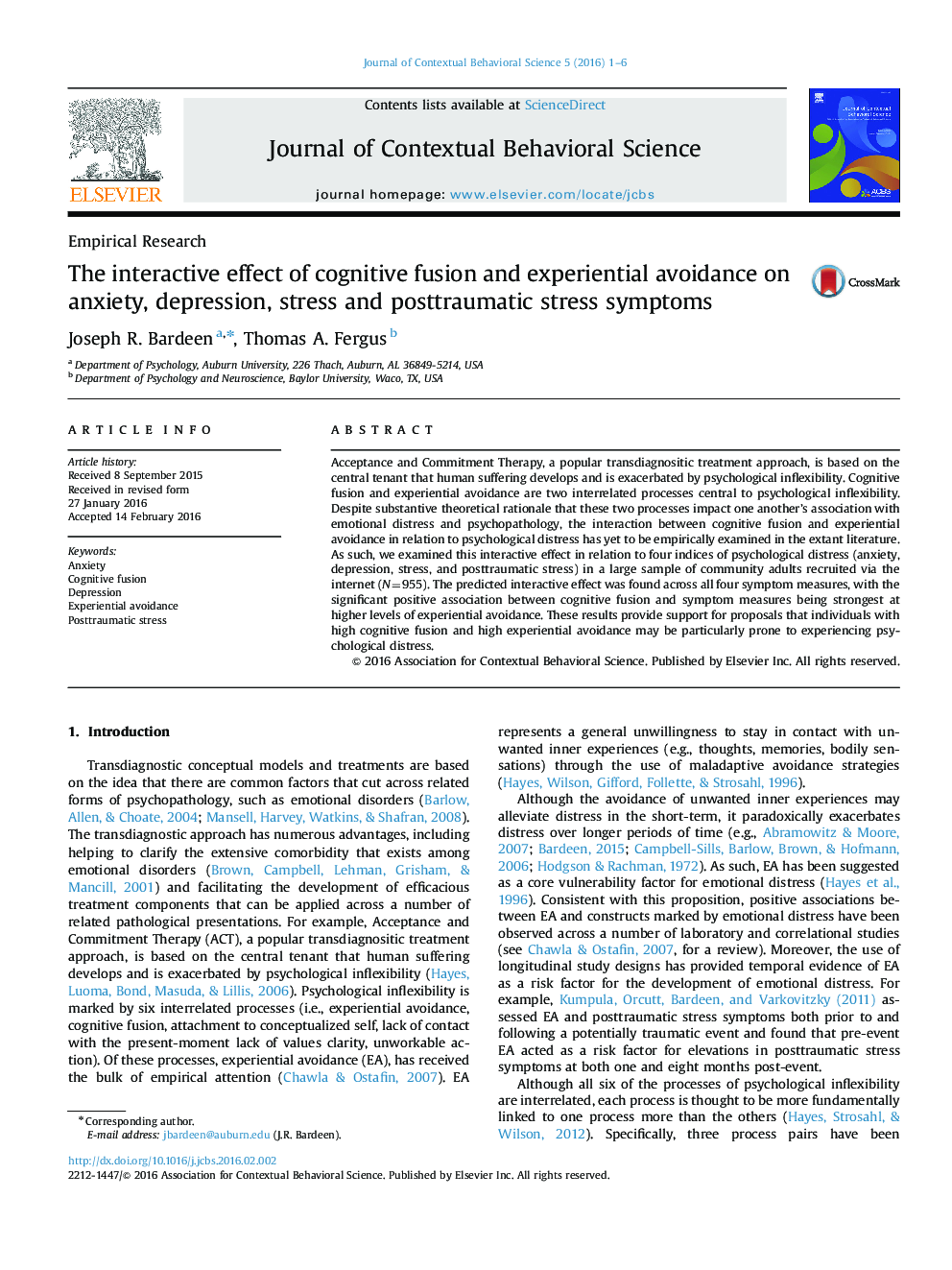| کد مقاله | کد نشریه | سال انتشار | مقاله انگلیسی | نسخه تمام متن |
|---|---|---|---|---|
| 911158 | 917895 | 2016 | 6 صفحه PDF | دانلود رایگان |
• Examined cognitive fusion (CF), experiential avoidance (EA) and emotional distress.
• EA and CF interacted to predict anxiety, depression, stress and posttraumatic stress.
• Positive association between CF and outcome variables strengthened as EA increased.
• High CF and High EA individuals may be more vulnerable to emotional distress.
Acceptance and Commitment Therapy, a popular transdiagnositic treatment approach, is based on the central tenant that human suffering develops and is exacerbated by psychological inflexibility. Cognitive fusion and experiential avoidance are two interrelated processes central to psychological inflexibility. Despite substantive theoretical rationale that these two processes impact one another’s association with emotional distress and psychopathology, the interaction between cognitive fusion and experiential avoidance in relation to psychological distress has yet to be empirically examined in the extant literature. As such, we examined this interactive effect in relation to four indices of psychological distress (anxiety, depression, stress, and posttraumatic stress) in a large sample of community adults recruited via the internet (N=955). The predicted interactive effect was found across all four symptom measures, with the significant positive association between cognitive fusion and symptom measures being strongest at higher levels of experiential avoidance. These results provide support for proposals that individuals with high cognitive fusion and high experiential avoidance may be particularly prone to experiencing psychological distress.
Journal: Journal of Contextual Behavioral Science - Volume 5, Issue 1, January 2016, Pages 1–6
